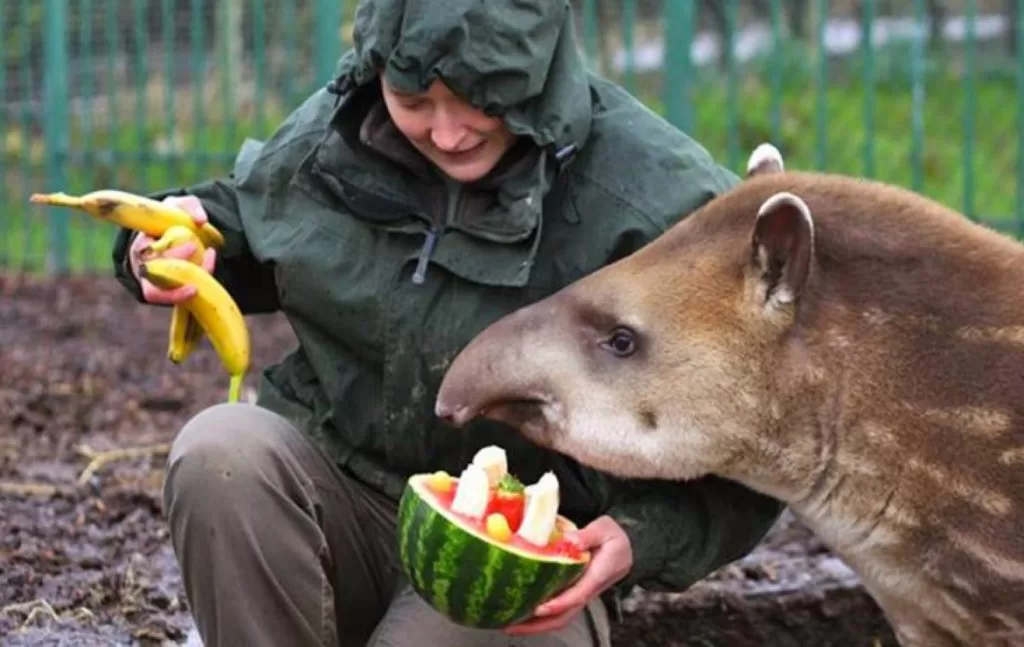Conservation at Armathwaite Hall and Lake District Wildlife Park
Conservation at our heart
Conservation is at the heart of everything that Armathwaite Hall Hotel and the Lake District Wildlife Park does. Our ethos is not only to protect endangered species all over the world but the native wildlife that is on the estate. Armathwaite Hall is unique with our broad range of habitats teeming with wildlife, farmland and exotic animals. Where else can you relax, enjoy the beauty of the surrounding fells and lakes, see Galloway cows grazing in the fields and hear the distant calls of lemurs and lar gibbons from the treetops?

Conservation on the Armathwaite Hall Estate
Our estate falls within the Lake District National Park and we have an ongoing project to manage the land to create a haven for wildlife, reduce our carbon footprint and fight against climate change. The estate comprises over 200 hectares of farmland, grassland, woodland, lake shore, riverbank and over 27 hectares of upland hay meadow. We have two sites of special scientific interest (SSSIs) on the shores of Bassenthwaite Lake, which help to protect and provide habitats for species that would otherwise be at risk of extinction nationally.
A large part of this project has included tree planting adjacent to the already established ancient natural woodland. We have planted approximately 10,000 trees over the last 15 years. They provide habitat for birds and absorb carbon dioxide out of the atmosphere. We have planted with enough space between them to allow rough pasture and wildflowers to thrive. In the future, rare breed cattle will graze the land. This method of conservation grazing helps to keep the stronger grasses under control and allows the flowers to thrive. With an increased diversity of plants and wildflowers, the abundance of insects will increase, followed by a rise in the number of birds and mammals.
This method of grazing is already established on the fields that form the upland hay meadows. Belted Galloway cows graze the strong grasses and trample the ground, preparing it for new growth. We manage the hay meadows under the higher-level stewardship scheme (which is being replaced by the environmental land management scheme). We use low-input farming methods to ensure the land is not over-fertilised so that the abundance and diversity of wildflowers can increase. The hay from the meadows is cut as late as possible to allow for reseeding and provides a large proportion of the winter feed for the animals at the Lake District Wildlife Park.
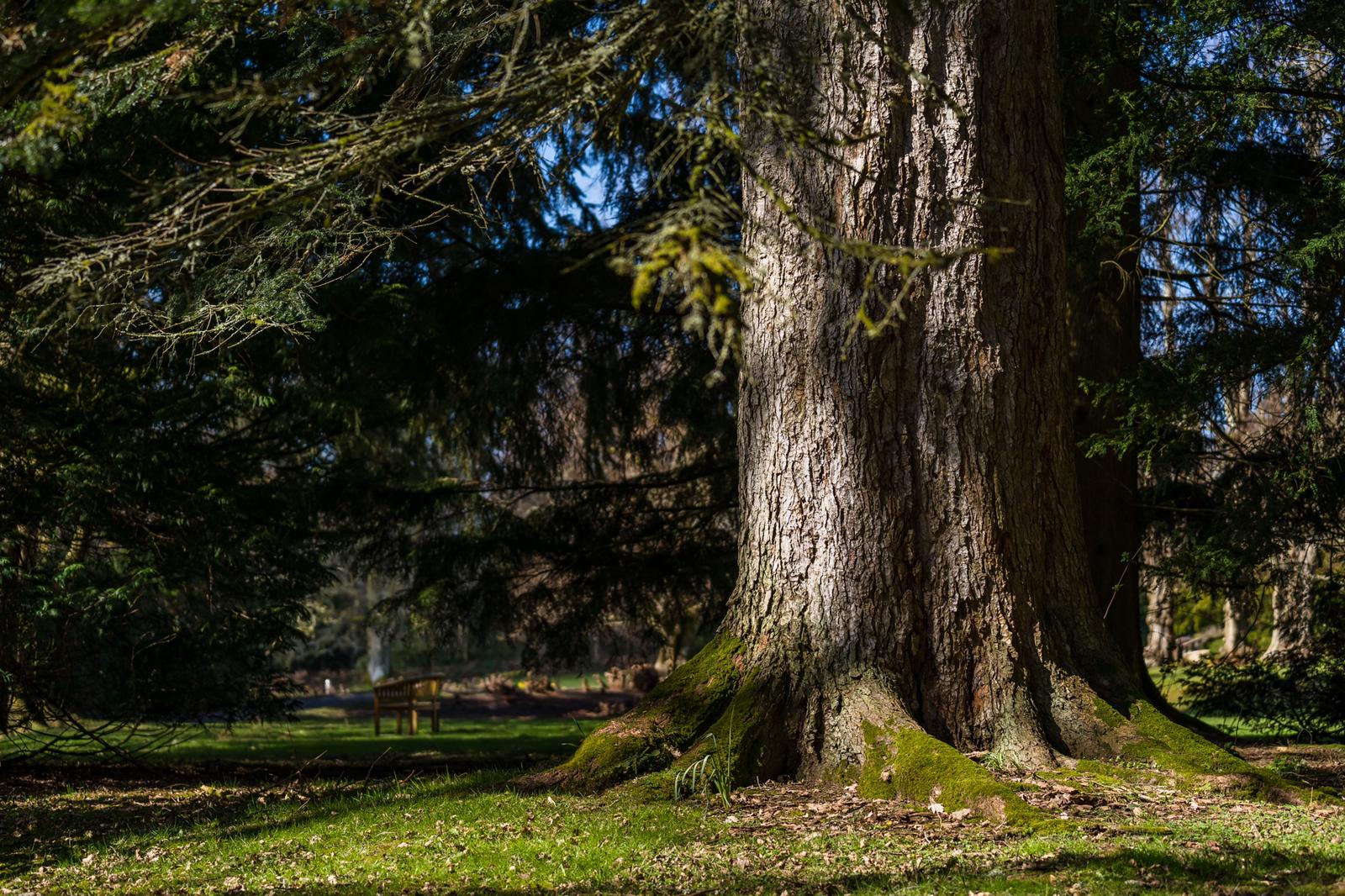
The Lake District Wildlife Park
The Lake District Wildlife Park sits on the Armathwaite Hall estate and is home to hundreds of native and exotic animals. It has a strong conservation, environmental, and educational ethos. In 2001 the Park joined BIAZA, the British & Irish Association of Zoos and Aquariums. This allowed the Park to include many of its species in the relevant stud books and in breeding programmes. As a result, the park is now part of a global network that breeds and protects endangered species.
Red panda conservation
The park houses two red pandas, a female called Mei Li (which means “beautiful one”) and a male Charu (which means “graceful”). Mei Li is independent and the more dominant of the pair; Charu does as he is told! However, he is more interactive with his animal keepers. They are very endearing animals and are one of the most popular species at the park, but they do need our help.
Mei Li and Charu have been together at the Park since 2016 as part of the European Endangered Species Breeding Programme. The aim of the programme is to conserve a healthy captive population of red pandas and to conserve the genetics for future generations. Red pandas are classed as endangered on the International Union for the Conservation of Nature (IUCN) red list. They are at risk in the wild due to deforestation, habitat fragmentation and poaching for the pet trade. Every day, the park holds an educational talk and red panda feeding to raise awareness about their plight in the wild.
The park supports the Red Panda Network (RPN), and for the last 10 years we have made an annual donation to their Forest Guardian Scheme. The RPN employs Forest Guardians who work to protect red pandas in the wild. The donated funds go towards field equipment, clothing, training and paying the wages of a Forest Guardian. Armathwaite Hall has made very generous donations over the last few years to help move forward conservation projects. The funds went towards the restoration of red panda habitat and the planting of bamboo for food. We have also topped up our donations by holding fundraising events such as raffles, a red panda walk, a red panda run, and a sponsored via ferrata climb.
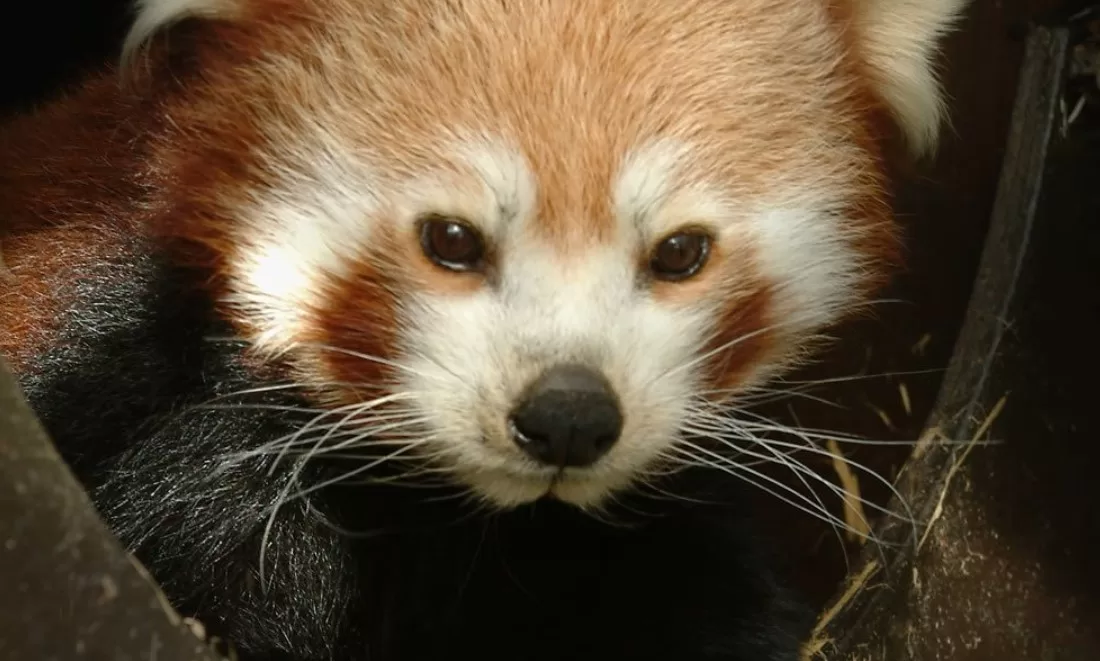
Lemurs and SEED Madagascar
The park houses three different species of lemur: ring-tailed, black and white and red ruffed lemurs – the latter are part of the European Endangered Species Programme. We have successfully bred black and white lemurs and ring-tailed lemurs. Lemurs are endemic to Madagascar and many species are endangered or critically endangered in the wild. They are at risk from habitat loss, poaching and the pet trade.
We donate and fundraise money for SEED Madagascar, a fantastic charity that works with communities to build schools, educate on sanitation and health and improve the cohabitation of animals and humans in Madagascar. We are committed to raising awareness of lemurs through daily educational keeper talks. Experiences are also available where people can meet and learn more about how important it is to look after these animals in the wild.
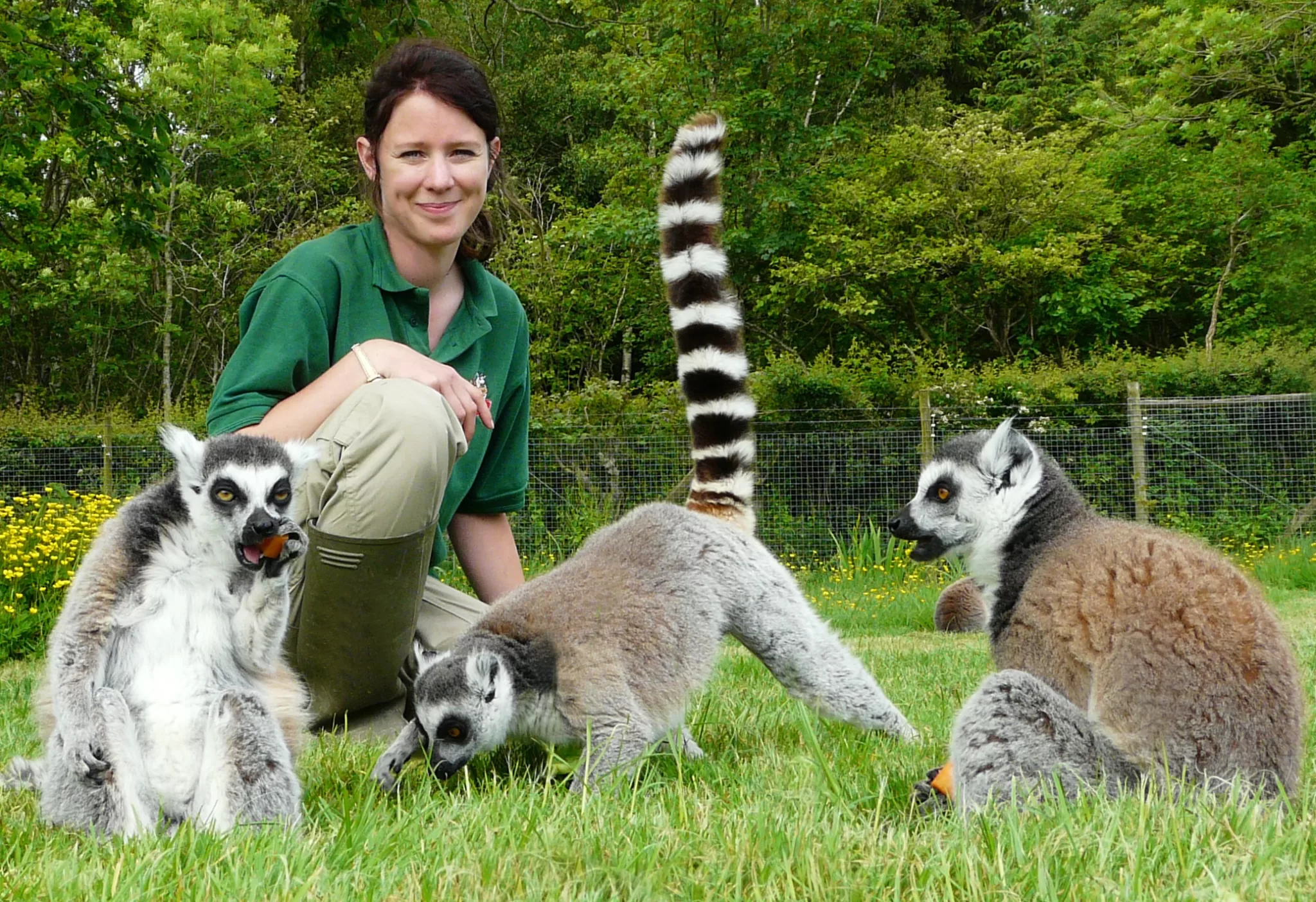
International Vulture Programme
The park houses two species of vulture: the hooded vulture and the turkey vulture. Vultures are scavengers and they find food by using their excellent sense of smell, but they are the most threatened group of birds in the world. They are endangered due to poisoning, hunting for the traditional medicine trade, electrocution and habitat loss.
We raise public awareness through daily bird of prey flying displays and fundraise through donations for vulture merchandise. Gonzo is our hooded vulture, and he is a real character! He is engaging and demonstrates what wonderful birds vultures are. Donations go to the International Vulture Programme.
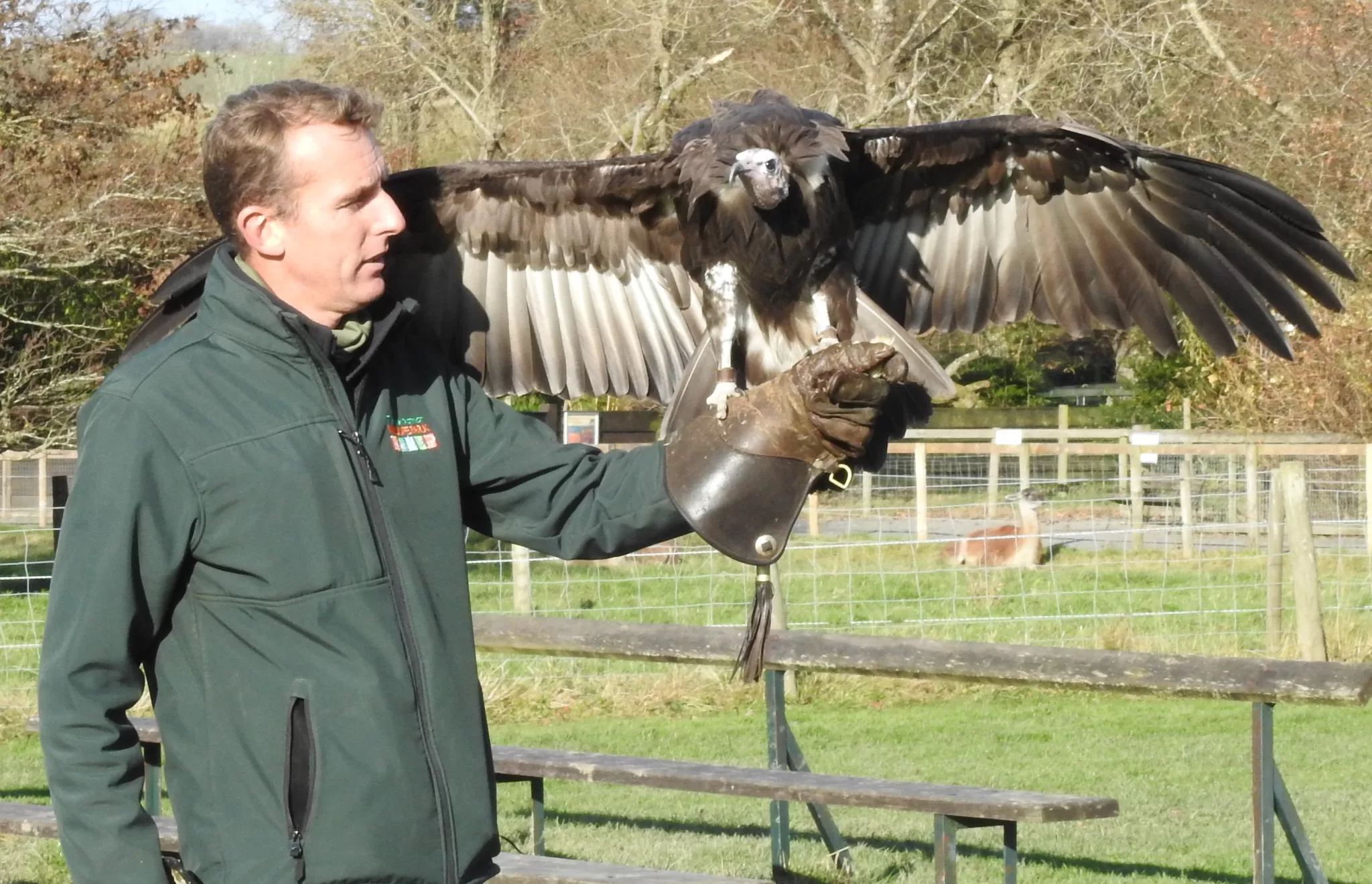
World Land Trust
For many years, we have been involved in raising money for the World Land Trust to help protect rainforests. On World Tapir Day, we hold sessions for the public to meet and greet our two adorable Brazilian tapirs, Muffin and Zico. For this unique opportunity, we collected small donations, which when all added together managed to buy and protect a hectare of rainforest through the World Land Trust!
